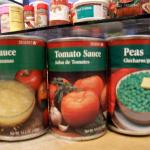In 2008 New York City became the first to require the posting of calorie counts in restaurants.
Food & Nutrition
In addition to the numerous metabolic problems (e.g. diabetes) associated with obesity, we can add problems with lung function.
"The Quack is a personage too essential to the comfort of society to be deprived of his vocation. He is, in fact, the Physician of the Fools, a body whose numbers and respectability are by far too great to admit of anything o
It's well established that the basic formula for healthier living and improved physical strength is achieved through a combination of sensible eating and regular exercise, where some lifting of weights is an integral component.
You best get your drink on this week, while beer and wine consumption is good for you!
The question of which diet is best for which people has led to some strange prescriptions, such as the worthless Blood Type Diet (see here for our take on this one).
A recently published story in the BMJ links the risk of breast cancer and all cancers to consumption of what are termed "ultra-processed" foods.
The Trump administration has recently proposed a rather drastic change to the Supplemental Nutrition Assistance Program (SNAP).
A recent study shed light on something we've known for some time, but haven't quite lived by: Eating slowly could curb weight gain. Here's why this makes sense.
American snowboarder slash Superwoman Chloe Kim just won her first Olympic gold medal in the Women's Snowboardi










